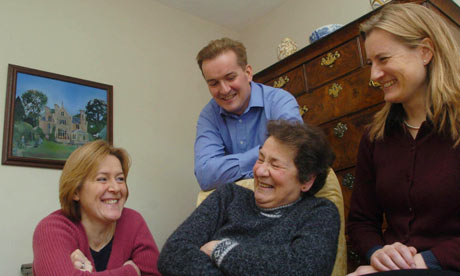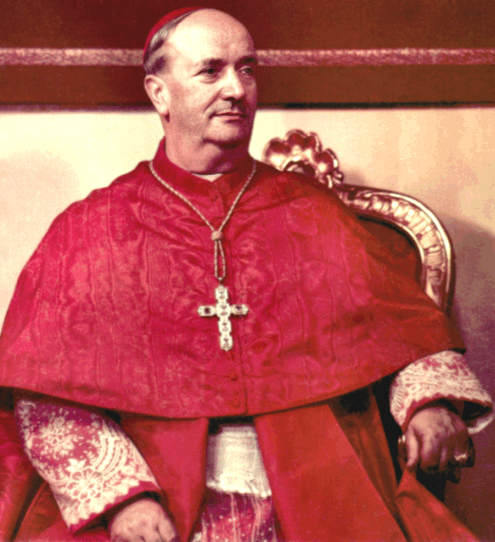
Because I determined there was too much joy and happiness in my life, I gave a rewatch (yes, a
rewatch) to the third installment in Tom Laughlin's
Billy Jack saga, the untouchably bad
The Trial of Billy Jack. Never has a film so personified excrement. You can take your
Leprechauns and
Manos: the Hands of Fate and
Batman and Robin, this is the worst movie ever.
Rather than review each film in-depth, or rewatch them all (
God no!), I'll provide a brief overview of the
Billy Jack saga. For an insightful review of these films, I recommend Jabootu's brilliant albeit ludicrously in-depth analysis
here. Otherwise, here is a fairly succinct overview of the adventures of that half-breed (yeah, right) ex-Green Beret-turned-fighter for Indian justice we all loathed in the Seventies and shake our heads at in disbelief now.*
Born Losers (1967)Born Losers (1967) is a pretty typical no-budget 1960's AIP exploitation flick. It's a product of James Nicholson and Samuel Zarkoff's infamous schlock factory, which started out with Z-Movie horror schlockfests (
It Conquered the World and other assorted MST3K fodder), then moved on to the Annette Funicello/Frankie Avalon
Beach Party films, and biker flicks like
Hell's Angels, all starring up-and-coming actors like Jack Nicholson, Dennis Hopper and Peter Fonda. If AIP can be credited with anything, it's tapping into the heretofore ignored teen market. This piece of drek came at the tail-end of the late '60s biker craze, starring struggling actor-turned-director Tom Laughlin.
Billy Jack, if anything, is a secondary character here, spending much of the running time trying to mortgage his land and truck with a crooked bank. The real focus is a series of rapes and other crimes committed by a sleazy biker gang led by Danny (Jeremy Slate) in a small town; the nominal protagonist is Vicky (Elizabeth James), a spoiled little brat largely ignored by her rich parents and yearns for excitement. She finds it alright, and when the cops prove unable to stop Danny's thugs, Billy Jack has to step in do what's right.
The movie has little to connect it to subsequent installments, although Billy's scrapes with the indifferent and crooked law and occasional "bad ass" moments (my favorite: Billy roughs up a biker, douses him with gas and threatens to set him ablaze), not to mention a complete lack of resemblance to a Native American are already well-established. The movie is mostly memorable for its disgusting misogyny: most of the rape victims either enjoy the rapes inflicted on them or are simply traumatized, with Billy basically saying that the parents deserve to have their kids raped by the bikers. Real class act, Laughlin.
Born Losers is just trashy biker exploitation, not without its moments of camp silliness, but with little to recommend it. Don't worry though, soon enough we'll be in camp classic territory.
Rating: 2/10
Billy Jack (1971)With the success of
Born Losers, Laughlin financed the sequel largely out of his own pocket. Here he blends his butt-kicking loner character with lots of loopy left-wing politics and digressive nonsense. The film is undeniably dreck, but it's so full of ridiculous, head-scratching scenes that it's an unparalleled kitsch classic. If nothing else, it's fun to tear into a la MST3K, or to just sit back and enjoy the madness.
Here we meet the characters we'll be stuck with for the rest of the franchise. The Freedom School, a glorified hippie commune somewhere in the Southwest led by Jean (Laughlin's real-life spouse Delores Taylor), teaches kids to "do their own thing" and express themselves. The local townspeople don't like it none, especially land boss Mr. Posner (David Roya) and racist deputy Mike (Kenneth Tobey), whose daughter (Julie Webb) ran away to the Freedom School. There are inevitable clashes between the school and the powers-that-be, as well as much racism directed at the local Navajo Indians, forcing Billy to take a stand.
From the first frame, with Coven's infamous
One Tin Soldier ("Go ahead and hate your neighbor! Go ahead and cheat a friend!") blaring on the soundtrack as a gang of rustlers attempts to round up wild stallions, you know what kind of film this is. Laughlin comes across like a lousy, albeit martial arts-knowledgable Clint Eastwood clone, but his complete lack of talent makes Clint look like Marlon Brando. The politics are hamfisted to the extreme, mixing an interesting view of government persecution of Native Americans (an interesting topic, to be sure) with incoherent ranting about the Kennedys, Civil Rights and Vietnam, uniformly atrocious dialogue and acting (obnoxious teen Barbara is hysterically funny), and endless digressive scenes of Freedom School students performing terrible songs. Then there's the lengthy guerilla theater segments led by Howard Hesseman, ranging from mildly amusing to unbearably obnoxious.
What really makes the film, however, is its dead seriousness. Everything (save the deliberate comic relief) is presented without a shred of irony or self-awareness, and it's clear Laughlin and Co. earnestly believe every word they say. The audience, however, need not share their sentiments. In fact, we may well find them ridiculous beyond belief.
Needless to say, audiences disaffected by the upheaval of the Sixties and the bitter fall-out of the Nixon Administration ate this film up, making it a huge box-office success. It came out at just the right time, and Laughlin made his name (and a bundle of cash) off it. Unfortunately, it also "entitled" us to two further sequels. The movie's biggest influence, however, is on the action genre. Billy's martial arts ass-whuppins provided the clear inspiration for Chuck Norris, Jean-Claude Van Damme, Dolph Lundgren, and most egregiously Steven Seagal, who even aped Laughlin's mystical pseudo-philosophy in several films.
Billy Jack, whatever its innumerable shortcomings, is a wonderful piece of '70s kitsch. It's easy to see how it's become a cult classic. (It's a bit frightening to contemplate how many people take it seriously, though.) This is the one to watch for camp fun, because we're about to delve into indescribable terror. You've been warned...
Rating: 5/10
The Trial of Billy Jack (1974)Everything that was "fun" about Billy Jack goes down the crapper in
The Trial of Billy Jack. The phenomenal success of
Billy Jack removed even more of Laughlin's restraints, and Laughlin goes full bore with this insipid, asinine and tremendously insulting 171 minute "epic." It's full of ridiculous subplots that go nowhere but drag on forever, plus insane political ramblings. This film isn't just bad, it's the embodiment of shit - the standard by which the
Troll 2s and
Leprechaun in the Hoods of the world must be judged.
The horribly organized plot concerns the fall-out of the original film. Billy is imprisoned for killing a Deputy, and Jean builds up the Freedom School. The authorities find themselves threatened by the School's increased "power", as they broadcast their own TV network and publish a newspaper that "exposes" corrupt both local and national. There's also arguing about Indian land rights, racism, and a showdown with the National Guard. There are the usual Laughlin digressions, with lengthy set-pieces and musical numbers (but no Howard Hesseman, thankfully), all theoretically fitting under the umbrella of a general plot, but resulitng in a cornucopia of incoherence.
At 171 minutes long, the breezy camp fun of the previous two installments evaporates. All that's left is pretentious, painful bloat and neon-sign preaching. It seems Laughlin didn't feel a need to cut a single frame of film from the finished project. That would certainly explain the endless subplots and digressive set-pieces that go on and on without actually contributing to the story.
Billy's lengthy vision quest is the camp highlight. Painted red, he travels into a spirit-occupied cave, encounters demons masquerading as cobras ("No cobras in this country, my friend!"), bats that screech like alley cats, and an Indian spirit guide who makes him punch Jesus in the face (!). This scene lasts half an hour and has nothing to do with the rest of the film. Whatever lessons Billy learns about peace are eradicated minutes later when he kicks the holy Hell out of some rednecks. Ain't that always the way?
But this epochal silliness is overwhelmed by mountains of truly wretched and discursive material. Billy's trial (which lasts maybe ten minutes), the lengthy rescue of two Indians trapped on a mountain, the internicine conflict within the Freedom School about dealing with the authorities, and the abused, one-armed child taught to love and care by the Freedom School students are unbearablu obnoxious. In all, the movie has about sixty subplots and sidestories that only vaguely tie together. Trying to craft a film of epic complexity, Laughlin only creates the greatest muddle ever committed to celluoid.
Laughlin's propaganda is childishly blunt throughout. We see Vietnamese civilians huddled into a trench and shot en masse by soldiers (including the summary execution of a crying baby), in an extended flashback scene. In perhaps the worst scene in cinema history, a National Guardsman (William Wellman Jr.) reluctant to fire into a crowd of student protestors is forced to at gunpoint. Not surprisingly, his very first shot hits
a one-armed crippled boy holding a bunny!!! Talk about deck-stacking: this is shooting the dealer and stealing his wallet.
One fluctuates between being offended and laughing hysterically. The attempts to tie the finale to real-life campus shootings like Kent State makes it even worse. The movie concludes with equally ludicrous scene where the Freedom School students sing
Give Peace a Chance over and over
and over for the better part of five minutes. By then, the viewer has long since tuned out, and is praying desperately for the end.
What more can be said, really? I cannot possibly do justice to how horribly obnoxious and terrible this movie is. You'd have to see it to believe it, but that's too high a price to pay for such knowledge.
Rating: -10/10 - Worst Film
EverBilly Jack Goes to Washington (1977)The fourth and final installment in the franchise only adds egregious insult to injury, and pisses on a Hollywood masterpiece in the bargain.
Billy Jack Goes to Washington (1977) isn't even entertaining as camp. It's a dull-as-dirt political "thriller" that has a moderate budget and some decent actors, and still produces utter shit. Perhaps that's because Laughlin and Co. didn't make themselves scarce.
As the title indicates, this is a remake of the Frank Capra-James Stewart classic
Mr. Smith Goes to Washington (Frank Capra Jr. even produces the damned thing!), only with an obnoxious post-Watergate bent. Billy is inexplicably appointed to fill a Senate seat; his predecessor was investigating corruption within America's nuclear program. Billy wants to build a national child's center instead, arguing that the site selected for the plant is unsafe due to fault lines (presumably it would be safe for the children then?). Of course, he finds corruption and indifference blocking his every step. If you've seen the Capra film, you know the story.
By the time of this film, Billy was already an anachronism. Jimmy Carter was President and the painful memories of Vietnam and Watergate were, if not forgotten, then largely put in the past. Oil embargoes and inflation were becoming more important than the corruption of a past administration. In this film, even more than its predecessors, Laughlin comes across as not only outlandish but actively insane, with evil omnipotent government conspiracies that make
The X-Files look grounded in reality. Capra's film, granted, was cynical about American politics to a greater degree than he's given credit for, but never did it even approach the lunacy that Laughlin engages in.
But that's not even the worse part. The movie is pretty much a shot-by-shot remake of the Capra film, which makes it all the more painful. Laughlin shoe-horns in a ridiculous action scene (involving "CIA Agents" posing as street thugs) to placate his blood-thirsty audience, then surrounds it with endless political platitudes and simplistic civics lessons. Many are almost verbatim from the original film, such as Billy's inspirational trip to various Washington monuments and his desperate filibuster. The difference here is that James Stewart is being replaced by Tom Laughlin, who can't emote his way out of a paper-bag. The final scenes of him aping Stewart's "You think I'm licked!" speech on the Senate floor is pathetic beyond words. The difference, of course, is that the original film was made by very, very talented people; Tom Laughlin is about as talented as a second-year film student at a particularly bad community college.
The film wastes a respectable supporting cast. Peter Donat (
The Godfather Part II) as a reporter, E.G. Marshall (
Twelve Angry Men) in the Claude Rains role, Luci Arnaz (yes, the daughter of Lucy and Desi) as the dedicated Secretary Saunders and Pat O'Brien as another Senator are among those lashing their talent to this sinking ship of shit. The movie ends on a reprise of
One Tin Soldier, just so you know this really was a
Billy Jack movie, despite all the evidence to the contrary. Thankfully, Mr. Laughlin hasn't been able to film his planned fifth installment, for which we can all be eternally grateful.
And that's that. Even if you somehow like the other
Billy Jack installments, do not EVER watch this one. If you do, that's your own damned fault.
Rating: 1/10
I hope this experience has been enlightening for you all. I watch these movies so you don't have to, and to let you know that cinema can be worse than you thought possible. Next time your buddy says that the latest big-budget piece of crap (
Transformers 2?) is the worst film ever, just shake your head and tell them you know better...
* - I wasn't alive in the '70s, myself, but I don't see how that's relevant.




























